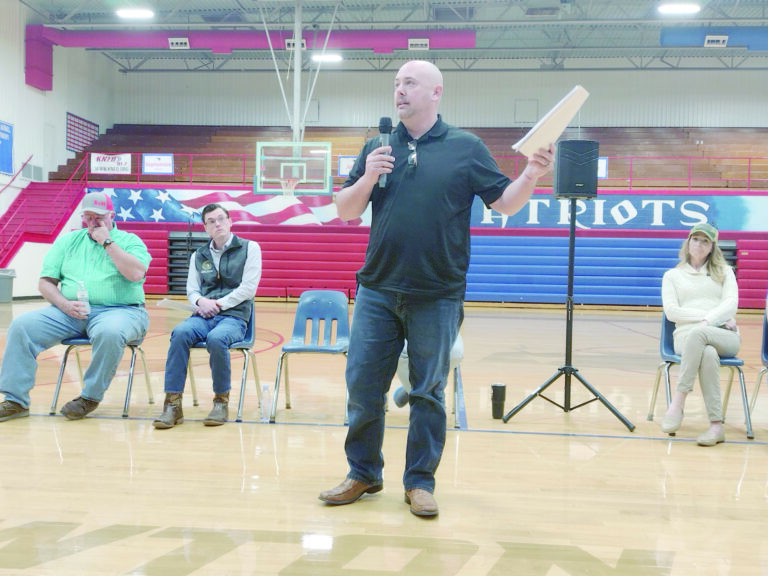Sludge
Free sludge appeals to some local landowners
A handful of Barry and Newton County landowners traveled to Jefferson City to testify in support of the land application of Denali Water Solutions’ industrial-processing sludge at a Missouri Senate hearing on March 26. Their testimony, along with that of Denali executive Rob Currey, was an attempt to convince senators to vote against proposed legislation that will more tightly regulate the storage and land-application of meat and other food-processing waste.
DNR to host land application info meeting
The Missouri Department of Natural Resources (DNR) Water Protection Program will hold a public informational meeting on April 11 from 10 a.m. to noon regarding permitting of the land application of industrial wastewater and wastewater treatment residuals.
DNR public comments due March 18
Public comments on proposed permits for the land-application of sludge to over 8,400 acres of land in Barry County are due to the Missouri Department of Natural Resources (DNR) by 5 p.m., Monday, March 18.

SLUDGE fund grows
State Rep. Dirk Deaton, R-Noel, and State Sen. Jill Carter, R-Granby, spoke to a group of some 100 people who attended an event to raise money for legal fees for SLUDGE, LLC, at East Newton High School, Feb. 24.
House bill takes aim at ‘cesspool’ of meatpacking sludge
Between Vallerie Steele, her seven siblings and their children, there’s always a birthday or anniversary to celebrate on the family’s southwest Missouri farm. The summer months are typically a parade of pool parties and barbecues.
S.L.U.D.G.E. files contempt motion against Denali, landowners
Group aiming to get lab samples from lagoons via subpoenas Environmental Attorney Stephen Jeffery filed a motion in Cole County Circuit Court on Feb. 23 to hold Denali Water Solutions and landowners Keith Gideon and Jerry Evans in contempt of court for refusing to cooperate with the terms of subpoenas they were served with in January.
Law changes proposed for industrial waste haulers
Proposed Missouri House Bills 1956 and 2134 were the subject of a nearly three-hour hearing before the House Conservation and Natural Resources Committee on Jan. 8.



